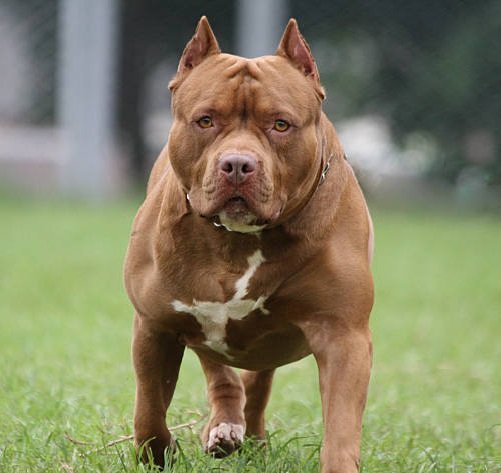The American Pit Bull Terrier is a breed that sparks admiration, curiosity, and sometimes controversy. Known for their loyalty, intelligence, and physical prowess, these dogs are both misunderstood and beloved by dog enthusiasts. This guide delves deep into their history, temperament, training needs, and more to provide a full picture of this fascinating breed.
Table of Contents
- History of the American Pit Bull Terrier
- Physical Characteristics
- Temperament and Personality
- Training and Socialization
- Exercise and Activity Needs
- Health and Nutrition
- Common Misconceptions
- Responsible Ownership
- Adopting an American Pit Bull Terrier
- Frequently Asked Questions
History of the American Pit Bull Terrier
The American’ Pit Bull Terrier traces its origins back to England, where it was bred from bulldogs and terriers. Initially, these dogs were used for bull-baiting and later for ratting competitions. When these sports were banned, they transitioned into loyal companions and working dogs.
In the 19th century, immigrants brought the breed to America, where it gained recognition for its strength, agility, and loyalty. Over time, the American’ Pit Bull Terrier evolved into a versatile breed, excelling in tasks ranging from farm work to search and rescue missions.
Physical Characteristics
The American’ Pit Bull Terrier is a medium-sized, muscular dog with a short, glossy coat. They typically stand between 17 to 21 inches tall and weigh between 30 to 60 pounds, with females generally being smaller than males.
Key physical traits include:
- Head: Broad and powerful with a strong jawline.
- Ears: Natural ears that may be cropped or left uncropped.
- Eyes: Almond-shaped, giving an alert and intelligent expression.
- Coat: Smooth, short, and easy to maintain, available in a wide range of colors and patterns.
Temperament and Personality
One of the most misunderstood aspects of the American’ Pit Bull Terrier is its temperament. Despite stereotypes, these dogs are known for their affectionate and playful nature.
- Loyalty: They form strong bonds with their families and are protective without being aggressive.
- Intelligence: Quick learners who respond well to training.
- Energy: High energy levels make them ideal for active families.
- Affection: Known to be “nanny dogs” due to their gentle nature with children.
While they are generally friendly, proper socialization is essential to ensure they interact well with other dogs and strangers.
Training and Socialization
Training is a crucial part of owning an American’ Pit Bull Terrier. Their intelligence and eagerness to please make them highly trainable, but consistency and patience are key.
- Early Socialization: Introduce them to various environments, people, and other pets at a young age to build confidence and reduce fear.
- Positive Reinforcement: Use treats, praise, and play to reward good behavior.
- Obedience Training: Focus on basic commands such as sit, stay, and come to ensure control in various situations.
- Advanced Training: Consider agility or obedience competitions to channel their energy productively.
Exercise and Activity Needs
The American’ Pit Bull Terrier is an energetic breed that thrives with regular physical and mental stimulation. Without proper exercise, they may become bored and develop destructive behaviors.
- Daily Walks: At least 60 minutes of walking or running.
- Playtime: Interactive games like fetch, tug-of-war, or agility courses.
- Mental Stimulation: Puzzle toys and training sessions to keep their minds engaged.
Health and Nutrition
Like all breeds, the American’ Pit Bull Terrier has specific health considerations:
Common Health Issues
- Hip Dysplasia: A genetic condition affecting the hip joint.
- Allergies: Often prone to skin allergies, which may require special diets or medications.
- Heart Disease: Regular check-ups are vital to monitor cardiovascular health.
Nutrition Tips
- Feed a high-quality diet with the appropriate balance of protein, fats, and carbohydrates.
- Portion control is essential to prevent obesity.
- Fresh water should always be available.
Common Misconceptions
The American Pit Bull Terrier has been unfairly stigmatized due to its history and media portrayal.
- Aggression: They are no more aggressive than other breeds when properly trained and socialized.
- Suitability for Families: They are excellent family pets, known for their affection and patience with children.
- Banning the Breed: Breed-specific legislation often unfairly targets American’ Pit Bull Terriers despite a lack of evidence that they are inherently dangerous.
Responsible Ownership
Owning an American Pit Bull Terrier comes with responsibilities:
- Training: Commit to consistent training and socialization.
- Exercise: Provide regular physical and mental stimulation.
- Legal Considerations: Be aware of local laws or regulations regarding the breed.
Adopting an American’ Pit Bull Terrier
If you’re considering bringing an American Pit Bull Terrier into your home, adoption is a fantastic option. Many shelters and rescue organizations specialize in this breed and can match you with a dog that fits your lifestyle.
Steps to Adopt:
- Research local shelters and rescues.
- Meet potential adoptees to find the right fit.
- Prepare your home for the arrival of your new companion.
Frequently Asked Questions
Are American Pit Bull Terriers good with kids?
Yes, they are often referred to as “nanny dogs” for their gentle and protective nature with children.
How much exercise does an American Pit Bull Terrier need?
They require at least 60 minutes of vigorous exercise daily to stay healthy and happy.
Are American Pit Bull Terriers aggressive?
No, aggression is not an inherent trait. Proper training and socialization result in well-behaved and friendly dogs.
Conclusion
The American’s Pit Bull Terrier is a loyal, intelligent, and energetic breed that thrives with the right care and training. While misconceptions persist, these dogs continue to prove themselves as loving family members and capable working dogs. If you’re ready to commit to their needs, an American Pit Bull Terrier can be a rewarding addition to your life.





